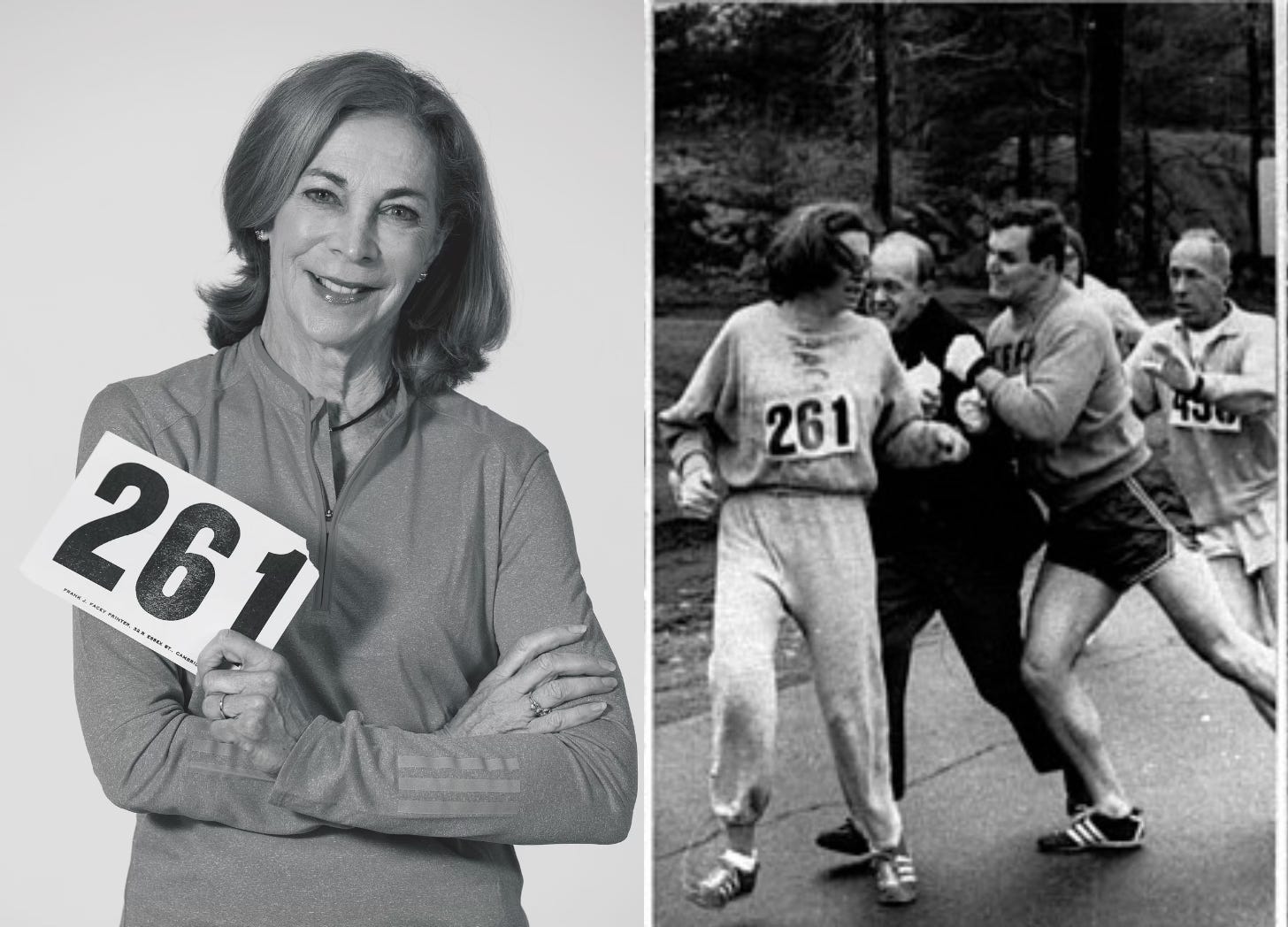They said her uterus would fall out. She ran the marathon anyway.
Kathrine Switzer didn’t mean to make history in 1967, she just wanted to run.

In the 1960s, women were not allowed to compete officially in marathons in the US because of myths about their fragility - like the idea that running might make them infertile, or cause their uterus to fall out.
Kathrine Switzer challenged those ideas when she made history in 1967 as the first woman to officially run the Boston Marathon - a landmark moment in sport and women’s rights, marked by an iconic photograph of an attempt to remove her from the race.
The rules didn’t explicitly ban women, but organisers followed the Amateur Athletic Union (AAU) guidelines, which stated that women were not permitted to run races longer than 1.5 miles.
Just a year before Switzer’s iconic race, in 1966, a woman named Bobbi Gibb had applied to run the Boston Marathon and was denied. Organisers told her women were “not physiologically able” to run that distance.) She jumped in anyway and ran the entire 26.2 miles without a bib, becoming the first woman to complete the race unofficially.
Switzer, a 20-year-old journalism student and passionate runner, wasn’t trying to make a statement, she simply wanted to run. Speaking to The Female Lead for its 2021 book The Female Lead (Vol II): We Rise By Lifting Others, Switzer remembers friends warning her that “no one’s going to date you” and that it “wasn’t cool to sweat." She ignored them.
She’s written in her memoir that her high school basketball coach told her women would never play the men’s version of basketball because the “excessive number of jump balls could displace the uterus.”
Encouraged by her coach and training partner Arnie Briggs, who had “completed the marathon 15 times”, Switzer applied for the Boston Marathon with just her initials: “K. V. Switzer”.
“The officials had no idea [I was a woman] and issued me with the number 261,” she said.
Reportedly, Switzer tucked her ponytail beneath a cap, collected her race number, and lined up at the start unnoticed. Once the race was underway, she pulled off the cap and let her hair down. Four miles in, race official Jock Semple spotted Switzer and launched himself onto the course.
“I heard, ‘Get the hell out of my race!' He tried to rip the 261 off my chest and off my back, ripping the corner. He smacked Arnie away and came after me,” Switzer said.

“I was terrified and humiliated,” she recalled. “I felt like quitting. But then I realised: that’s what everyone expected me to do. And if I dropped out, nothing would change for women.”
Semple was charged out of the way by another runner, and Kathrine was able to finish the race
It took her four hours and twenty minutes. “I started the race as a girl and finished as a woman,” she said. “By the time I crossed the line, I knew I wanted to become a better athlete and to create opportunities for women in sport.”
Switzer was disqualified from the AAU, which tightened its rules to explicitly ban women from racing with men. In 1972, following public protest and growing pressure from female runners, it finally allowed women to officially register for marathons.
Related articles
And in 1984, the women’s marathon was included in the Olympic Games for the first time.
The Boston Marathon is a global symbol of endurance and thanks to pioneers like Switzer and Gibb, women now make up nearly half the field.
Kathrine is quick to point out that her story is still relevant today.
“We still live in a world where women are told they can’t or shouldn’t do something - whether that’s on the starting line, in a boardroom, or in politics. My experience reminds us that change often begins when we show up, stay in the race, and refuse to back down.”
Switzer’s bib number, 261, has become a symbol of fearless determination. So much so that she founded 261 Fearless, a global non-profit that encourages women to run and connect through sport.
“Running has given me everything - my career, my friends, my health, even my husband,” she says. “But most of all, it’s given me myself.”
We've proven that visible role models have a positive effect on girls' self-belief and aspirations.
Discover exclusive interviews with 66 other trailblazing women, and share them with the girls and women in your life, with The Female Lead (Vol II): We Rise By Lifting Others, now on sale at the reduced price of £10 ($13.50).
Each book sold fuels our crucial work teaching leadership and confidence in schools, supporting the next generation of girls to be all they can be.





